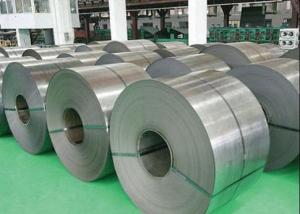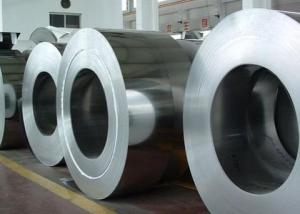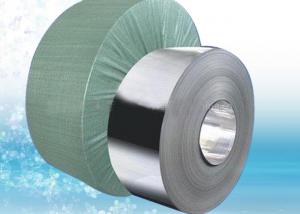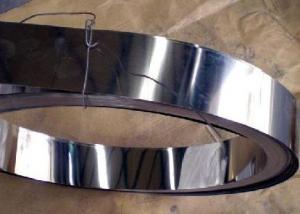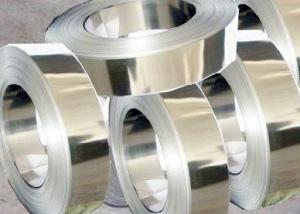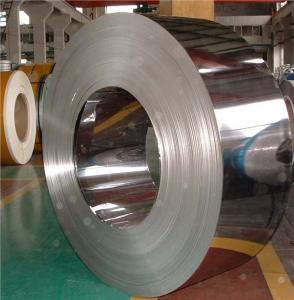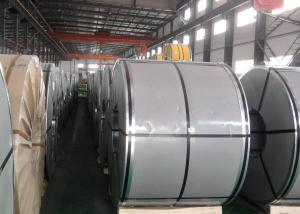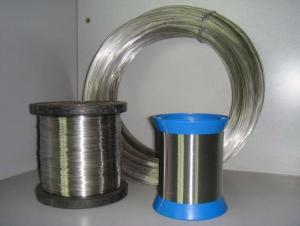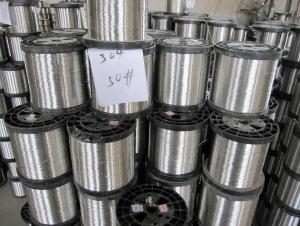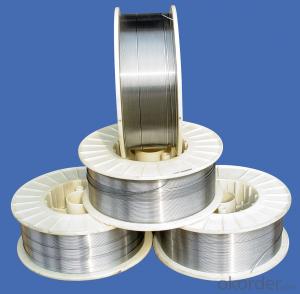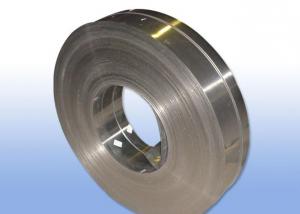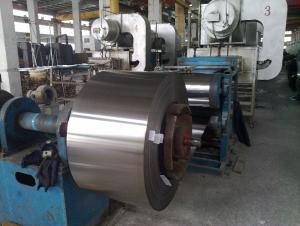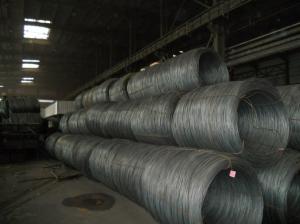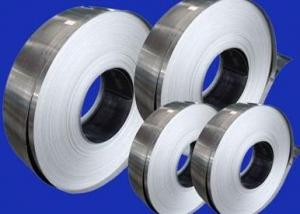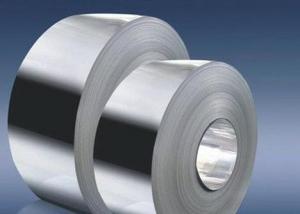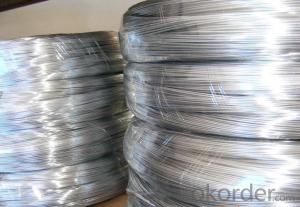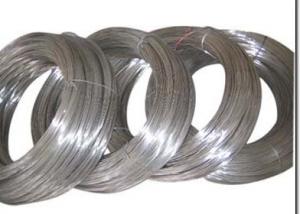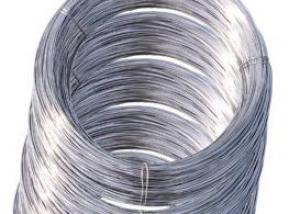201 2B Stainless Steel Strips
- Loading Port:
- China Main Port
- Payment Terms:
- TT or LC
- Min Order Qty:
- 1 Ton m.t.
- Supply Capability:
- 2000 Tons Per Month m.t./month
OKorder Service Pledge
OKorder Financial Service
You Might Also Like
201 2B Stainless Steel Strips
1. Chemical composition of 201 2B Stainless Steel Strips
C | Si | Mn | P | S | Ni | Cr |
max0.15 | max1.00 | 5.50-7.50 | max0.06 | max0.03 | max1.00 | 16.00-18.00 |
2. Mechanical properties of 201 2B Stainless Steel Strips
Yield Strength | Tensile | Elongation | Hardness (HV) | Hardness (HRB) |
245 | 640 | 40 | 253 | 100 |
3. Standard:
AISI, ASTM, GB, EN, DIN, JIS
4. Surface:
2B, NO.1, BA, NO.4, Hairline, SB, Mirror finish, Anti-skid, Cherkered etc.
5. Size:
Thickness: 0.3-3mm (cold rolled), 3-40mm (hot rolled)
Width: 1000mm or 1219mm or 1240mm for cold rolled, 1500mm for hot rolled.
Length: As customers' request.
6. MOQ: 1 Ton
7. Payment terms:T/T or L/C
8. Packing:
Seaworthy package with wooden or Iron pallets with the paper and the steel strip, or as customers' request.
9. Delivery time:
Usually about 7 days after we confirming the order, or according to your quantity.
If you have any question or demand, pls feel free to contact me.
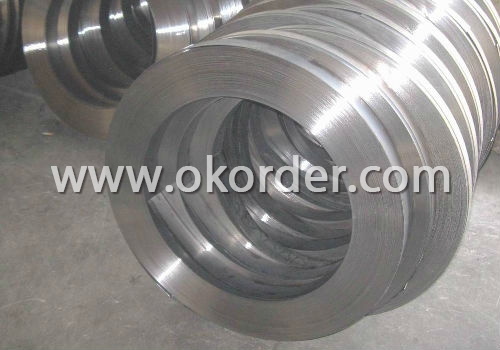
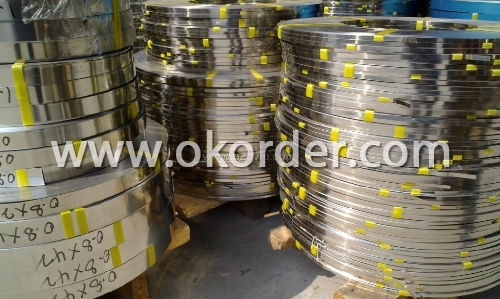
- Q:Is stainless steel wire resistant to crevice corrosion?
- Yes, stainless steel wire is generally resistant to crevice corrosion due to its high chromium content which forms a protective passive layer on its surface.
- Q:How does stainless steel wire perform in high-impact applications?
- Stainless steel wire is known for its exceptional strength and durability, making it a reliable choice for high-impact applications. It can withstand intense forces without breaking or deforming, ensuring a long-lasting performance even under harsh conditions. Additionally, stainless steel wire is highly resistant to corrosion, maintaining its structural integrity over time. Overall, stainless steel wire is well-suited for high-impact applications due to its superior strength and resilience.
- Q:What are the different types of stainless steel wire sleeves?
- There is a variety of stainless steel wire sleeves available, each serving specific purposes and applications. 1. Standard stainless steel wire sleeves: These sleeves are made from corrosion-resistant stainless steel and are commonly used for general wire protection. They offer excellent abrasion resistance and can withstand high temperatures, making them suitable for industries like automotive, aerospace, and electronics. 2. Mesh stainless steel wire sleeves: These sleeves have a woven mesh design that provides flexibility and breathability. They are commonly used when wire protection is necessary, while also allowing for ventilation or fluid flow. Industries such as HVAC, industrial machinery, and marine often use mesh sleeves. 3. Heavy-duty stainless steel wire sleeves: These sleeves are specifically designed to provide maximum protection in rugged and demanding environments. They are made from thicker stainless steel materials and offer superior resistance to impact, abrasion, and extreme temperatures. Heavy-duty sleeves are commonly used in industries like mining, construction, and oil and gas. 4. Coated stainless steel wire sleeves: These sleeves have a protective coating applied over the stainless steel material, providing additional resistance to chemicals, moisture, and UV radiation. The coating can be made of materials like PVC, Teflon, or silicone, depending on the specific application requirements. Coated sleeves are often used in industries such as automotive, telecommunications, and electrical. 5. Expandable stainless steel wire sleeves: These sleeves have an expandable structure that allows for easy installation and removal without disassembling the wires or cables. They offer a flexible and adjustable solution for wire protection in applications that require frequent maintenance or changes. Expandable sleeves are commonly used in industries such as robotics, automation, and telecommunications. In conclusion, the various types of stainless steel wire sleeves provide a range of options to meet specific wire protection needs. They ensure durability, corrosion resistance, and functionality in various industries and applications.
- Q:What is the electrical conductivity of stainless steel wire?
- The electrical conductivity of stainless steel wire is relatively low compared to other metals, such as copper or aluminum. However, it still possesses some level of conductivity that allows for the flow of electricity.
- Q:Is stainless steel wire suitable for medical applications?
- Stainless steel wire proves to be a suitable option for medical applications. Its numerous desirable properties establish it as an excellent selection within the medical field. The corrosion resistance of stainless steel is exceptionally high, a crucial factor in medical settings where the wire may encounter bodily fluids or sterilization procedures. Furthermore, stainless steel wire boasts remarkable strength and durability, rendering it an ideal material for medical applications that necessitate a sturdy and dependable substance. It can withstand the demanding conditions of medical procedures and equipment, ensuring enduring performance. Moreover, stainless steel wire is biocompatible, meaning it does not pose harm to living tissues and can be safely employed within the human body. This characteristic makes it fitting for a variety of medical devices, including surgical instruments, orthopedic implants, and cardiovascular stents. In conclusion, stainless steel wire is an adaptable and trustworthy material that caters to the stringent requirements of medical applications. Its corrosion resistance, strength, durability, and biocompatibility establish it as an exceptional choice within the medical field.
- Q:Is stainless steel wire suitable for automotive exhaust systems?
- Yes, stainless steel wire is suitable for automotive exhaust systems. Stainless steel offers high temperature resistance, corrosion resistance, and durability, making it an ideal choice for exhaust systems that are exposed to extreme heat and harsh environments.
- Q:What are the different types of stainless steel wire weaving patterns?
- There are several different types of stainless steel wire weaving patterns that are commonly used in various industries and applications. Some of the most popular patterns include: 1. Plain Weave: This is the simplest and most common type of weave pattern. It consists of a simple over-and-under interlocking of wires, resulting in a uniform appearance. Plain weave is versatile and can be used for a wide range of applications. 2. Twill Weave: Twill weave patterns have a diagonal appearance due to the staggered interlocking of wires. This pattern offers increased strength and stability compared to plain weave. Twill weave is often used in applications that require high tensile strength and durability. 3. Dutch Weave: Dutch weave patterns have a tighter and more closely spaced weave compared to plain or twill weaves. It is created by using a thicker warp wire and a thinner weft wire. Dutch weave is ideal for applications where fine filtration and high mechanical strength are required. 4. Five-Heddle Weave: This pattern is specifically designed to provide a high level of filtration efficiency. It consists of four warp wires and one weft wire, resulting in a dense and tight weave. Five-heddle weave is commonly used in industries such as oil and gas, petrochemical, and pharmaceuticals. 5. Reverse Dutch Weave: Reverse Dutch weave is similar to Dutch weave, but with reversed wire positions. This pattern has a finer mesh count and higher stability, making it suitable for applications that require excellent filtration and high flow rates. 6. Welded Wire Mesh: In this pattern, the wires are spot welded at their intersections, creating a strong and rigid mesh. Welded wire mesh is commonly used in construction, fencing, and industrial applications where strength and security are essential. These are just a few examples of the different types of stainless steel wire weaving patterns available. Each pattern has its own unique characteristics and is chosen based on the specific requirements of the application, such as strength, filtration, or aesthetics.
- Q:Is the water heater hose braided with stainless steel wires or with a PPR pipe?
- With stainless steel bellows, braided hose is best not to use, especially hot water pipes
- Q:What is brushed stainless steel?
- Wire drawing is a method of surface treatment of metal materials, the surface of the treated metal material has very fine linear pattern, this kind of grain can be seen, but can not be touched
- Q:Is stainless steel wire suitable for wire EDM machining?
- Wire EDM machining can effectively use stainless steel wire because of its exceptional electrical conductivity and high tensile strength. This type of machining involves the use of a thin wire that is conductive to electricity for precise material cutting. Stainless steel wire is commonly selected for wire EDM machining due to its positive attributes. One advantage of stainless steel wire is its ability to endure the intense heat produced during the EDM process, thanks to its high melting point. This quality makes it suitable for machining materials with high levels of hardness, such as hardened alloys or tool steels. Furthermore, stainless steel wire is resistant to corrosion, ensuring its durability and longevity throughout the machining procedure. It also maintains its shape and size under high tension, displaying excellent dimensional stability. This stability is crucial for achieving accurate and precise cuts during the machining process. Moreover, stainless steel wire is available in various grades, each possessing unique properties. This variety allows for flexibility in selecting the appropriate stainless steel wire for specific machining requirements. For instance, certain grades may offer improved machinability or higher tensile strength, making them suitable for different applications. In conclusion, stainless steel wire is an ideal choice for wire EDM machining due to its outstanding electrical conductivity, high melting point, corrosion resistance, dimensional stability, and range of available grades. Its utilization enables the precise and accurate cutting of diverse materials, making it an invaluable tool in the manufacturing industry.
1. Manufacturer Overview |
|
|---|---|
| Location | Zhejiang, China |
| Year Established | 2005 |
| Annual Output Value | Above US$1.6 million |
| Main Markets | Europe, North America. |
| Company Certifications | |
2. Manufacturer Certificates |
|
|---|---|
| a) Certification Name | |
| Range | |
| Reference | |
| Validity Period | |
3. Manufacturer Capability |
|
|---|---|
| a)Trade Capacity | |
| Nearest Port | Shanghai |
| Export Percentage | 40% |
| No.of Employees in Trade Department | Above 30 people |
| Language Spoken: | English, Chinese |
| b)Factory Information | |
| Factory Size: | Above 5000 square meter |
| No. of Production Lines | Above 6 |
| Contract Manufacturing | OEM Service Offered |
| Product Price Range | Average |
Send your message to us
201 2B Stainless Steel Strips
- Loading Port:
- China Main Port
- Payment Terms:
- TT or LC
- Min Order Qty:
- 1 Ton m.t.
- Supply Capability:
- 2000 Tons Per Month m.t./month
OKorder Service Pledge
OKorder Financial Service
Similar products
New products
Hot products
Related keywords
